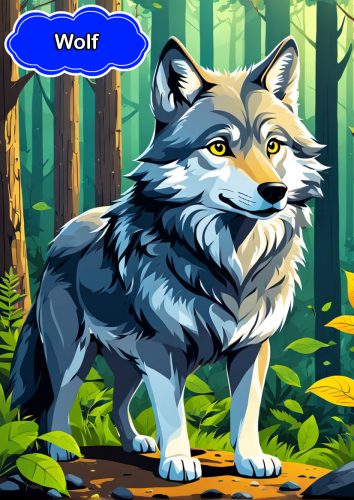
Wolves are fascinating and complex animals with some lesser-known traits. Here are a few interesting facts about them:
- Highly Social Structure: Wolves live in family groups called packs, which can consist of a few individuals to over a dozen. Packs are typically made up of a breeding pair and their offspring, and they exhibit strong social bonds.
- Communication Skills: Wolves communicate using a variety of vocalizations, including howls, growls, and barks. Howling helps them coordinate during hunts and maintain social connections with pack members over long distances.
- Territorial Behavior: Wolves are territorial animals, and a pack will defend its territory from other wolves. They use scent marking and vocalizations to communicate their boundaries and deter intruders.
- Hunting Strategies: Wolves are skilled hunters and often work together as a team to take down prey. They use various strategies, such as flanking or driving prey toward other pack members, showcasing their intelligence and coordination.
- Diverse Diet: While wolves primarily hunt large ungulates like deer and elk, they are opportunistic feeders and will consume smaller animals, carrion, fruits, and even human refuse when necessary.
- Role in Ecosystems: Wolves play a crucial role in their ecosystems by helping regulate prey populations. Their presence can lead to healthier herbivore populations and contribute to the overall balance of the ecosystem.
- Caring Parents: Wolf pups are cared for by both parents and other pack members. They are born blind and helpless, but by the time they are around two months old, they start to explore and play outside the den.
- Cultural Significance: Throughout history, wolves have held significant places in mythology, folklore, and cultural symbolism across many societies. They are often seen as symbols of loyalty, strength, and the wild spirit.
These traits highlight the social structure, hunting prowess, and ecological importance of wolves in their environments!
More resources:
Animals Coloring and Learning eBook
Animals Free Fun Learning eBook
Notes:
– All materials are strictly for personal use only.
– Do not reproduce and/or redistribute any part of these materials.
– Use these materials under parents’ and/or guardians’ guidance/supervision/approval.
![]()